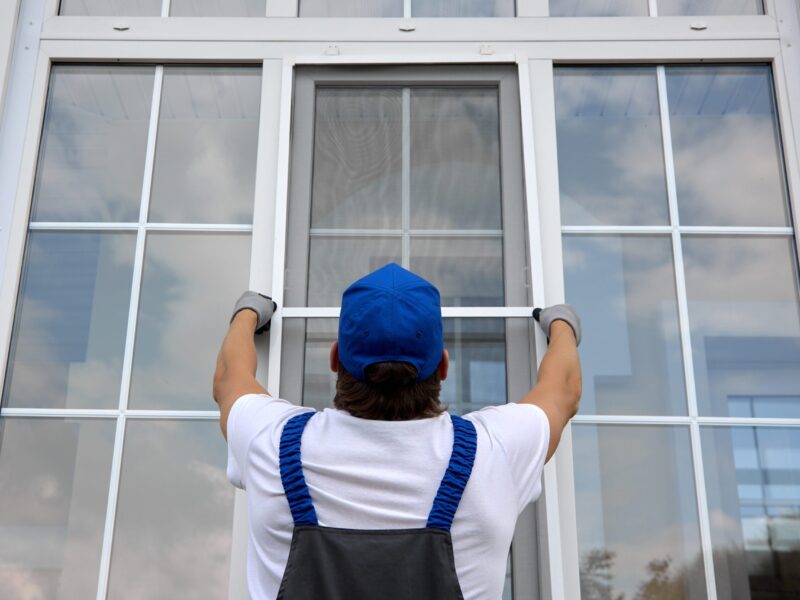Employees need to have a safe and healthy environment conducive to working. Without one, this can affect their productivity and efficiency, especially during stressful times in their careers. Plus, the lack of good working environments can dampen employee morale.
That’s why you should always make sure to consider the health and welfare of your employees. And you can start by ensuring that the air they’re breathing inside the office is clean. Prioritizing indoor air quality (IAQ) is a must because poor air quality can lead to respiratory and other health problems later.
If you’re not sure whether the air inside your workplace is safe, you can have it tested by professionals. But if you’re sure that your office has good IAQ, then you should continue doing what you’re doing now. Here are five more ways to improve the IAQ in your office without spending too much money:
Routine Maintenance
Your office’s HVAC system plays a significant role in maintaining the safety of your work environment. Its impact may not be as visible as other things, such as cleaning the glass walls or sweeping the floors, which is why it’s not that noticeable. But if it breaks or malfunctions in the middle of the workday, it can immediately disrupt the flow of operations.
That’s why you must always remember to keep up with your routine maintenance. This can include air duct cleaning and repairing any broken parts the moment you see them. Of course, you don’t have to do these things yourself, but you should make sure that your maintenance staff can see to it that your HVAC system is in peak working condition at all times.
Indoor Plants
Because offices are enclosed spaces, all the carbon dioxide released by the employees hang in the air. Although the HVAC system can filter out the airborne contaminants, it may not be enough for an entire office with more than 20 people at a time. So, consider placing indoor plants around the workplace.
Indoor plants can help cleanse the air by absorbing the carbon dioxide and releasing oxygen; you can easily improve the IAQ of your workplace. Plus, because most indoor plants are vibrantly green, they can add a pop of color to any area they are placed. Just make sure that they can still get sunlight whenever possible so that they don’t lose their vivaciousness.
Dehumidifiers
Molds often breed in moist or damp areas that don’t get aired out. This is because mold spores are always lingering in the air, so when they land in moist areas, they tend to settle and grow there. And while molds alone aren’t safety hazards, they can cause respiratory problems to those who are exposed to them.
If your office is located in a particularly humid region, or if you can’t control the moisture levels in your workplace, you might want to consider investing in dehumidifiers. These are appliances that draw in the warm air through their fans and give out cooler air through the process of condensation.
Smoke Detectors
It would be irresponsible to open an office without working smoke detectors because doing so puts the safety of everyone inside at risk. Electrical fires can always happen out of the blue, whether it’s because of loose wiring, broken wall sockets, a malfunctioning machine, or other accidents that can occur in an office.
Without code-compliant smoke detectors, it may be too late before someone notices that a fire has started inside the office. This can lead to injuries and casualties, especially if the incident causes an office-wide panic. So, to avoid this from happening, make sure that you have smoke detectors inside rooms and in hallways. Also, remember to change its batteries at least once a year.
Proper Ventilation
Most offices are air-conditioned because it’s easier to control and more convenient for the employees. After all, the air in the cities is often polluted, and it can be difficult to work in peace if strong drafts are coming in from the open windows. But even though your workplace depends on the HVAC system for clean air, it won’t hurt to manually ventilate the office once in a while.
Don’t be afraid to crack the windows open after work hours or over the weekends, as this can help push stale air out and allow fresher air to come in. Plus, this can do wonders for the ventilation in your office. So, if you’re not sure how to improve your IAQ, choose to prioritize air circulation and ventilation.
The IAQ in your workplace may not seem all that important, but in hindsight, it plays a much bigger role than you think. This is because good IAQ can help your employees work more efficiently since there are no disruptions to their productivity, which can improve your company’s bottom line. So, at the end of the day, it’s still a win-win situation..


